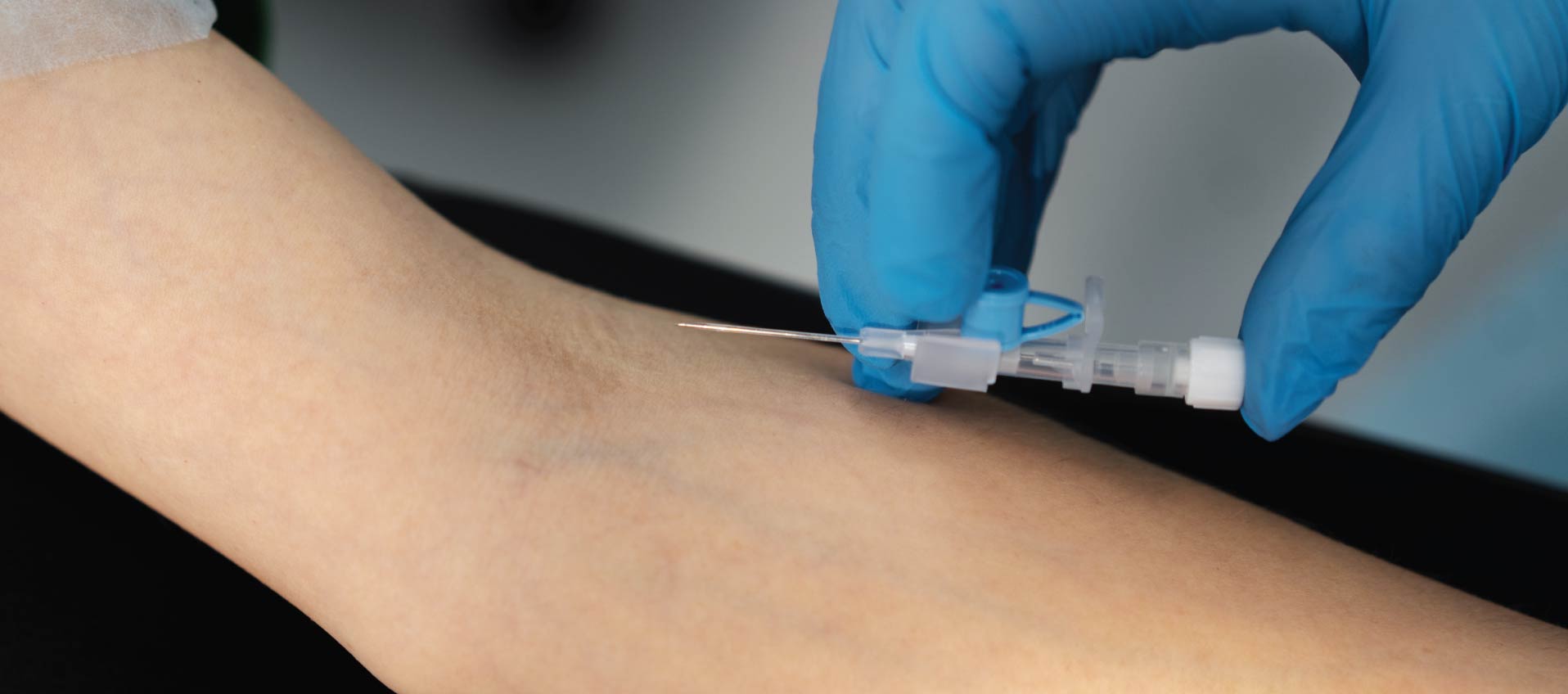Table of Contents
Does Urgent Care Do IVs in Odessa, Texas – Priority ER 24/7
When dehydration or illness demands rapid treatment, many patients wonder does urgent care do IVs to provide the relief they desperately need. At Priority ER in Odessa, Texas, our board-certified emergency physicians and specialized nursing staff provide guaranteed comprehensive IV therapy 24 hours a day, offering West Texas residents the advanced intravenous treatments that many urgent care centers simply cannot deliver due to staffing, equipment, and regulatory limitations.
Located at 3800 E 42nd St, Suite 105, our emergency room care facility serves Odessa, West Odessa, Midland, Gardendale, and surrounding Ector County communities with hospital-level IV capabilities. Understanding the significant differences between urgent care and emergency room IV services helps patients make informed decisions about where to seek treatment when intravenous therapy becomes medically necessary.
IV Service Reality Check – Urgent Care vs Emergency Departments (2024)
The healthcare industry faces a communication crisis when patients assume all medical facilities offer similar services. The question ‘does urgent care do IVs’ reveals fundamental misunderstandings about facility capabilities. Most urgent care centers operate as enhanced doctor’s offices, not mini emergency rooms, creating dangerous gaps when patients need comprehensive IV therapy.
The Reality of Urgent Care IV Services
Understanding what urgent care centers actually provide versus what patients expect reveals significant service gaps affecting treatment decisions. While urgent care fills an important role for minor illnesses and injuries, their business model and regulatory framework create inherent limitations preventing comprehensive IV services that emergency departments routinely provide as standard care.
Our laboratory testing services exemplify the difference between urgent care and emergency capabilities. While urgent care may offer basic tests, emergency departments provide immediate comprehensive lab work guiding IV fluid selection, electrolyte replacement, and medication dosing – essential components of effective IV therapy unavailable at facilities lacking integrated laboratory services.

Why Urgent Care Has Limited IV Services
Multiple factors contribute to urgent care centers’ limited IV capabilities, beginning with their fundamental business model focused on quick, simple treatments rather than complex medical interventions. Staffing patterns emphasize medical assistants and nurse practitioners handling routine cases, often lacking registered nurses specifically trained in IV placement and monitoring throughout all operating hours.
A Gardendale construction supervisor suffering severe heat exhaustion visited three urgent care centers during his lunch break. Each facility either lacked IV services entirely or couldn’t provide the specific electrolyte replacement he needed. By the time he reached Priority ER, his condition had deteriorated significantly. Two liters of balanced IV fluids with careful electrolyte monitoring restored his stability within 90 minutes.
A Gardendale construction supervisor suffering severe heat exhaustion visited three urgent care centers during his lunch break. Each facility either lacked IV services entirely or couldn’t provide the specific electrolyte replacement he needed. By the time he reached Priority ER, his condition had deteriorated significantly. Two liters of balanced IV fluids with careful electrolyte monitoring restored his stability within 90 minutes.
Equipment and Supply Constraints
IV therapy requires extensive equipment beyond simple needles and tubing. Infusion pumps ensuring accurate flow rates, monitoring equipment tracking patient response, ultrasound machines for difficult IV placement, and warming cabinets for temperature-sensitive fluids represent significant capital investments many urgent care centers cannot justify for occasional use.
Medication inventory presents another barrier, as IV drugs require special storage, expire quickly, and demand strict regulatory compliance. Maintaining comprehensive IV medication stocks for rare use proves economically unfeasible for urgent care business models dependent on high patient volume with quick turnovers.
Insurance and Regulatory Barriers
Reimbursement structures favor simple urgent care visits over complex IV treatments requiring extended monitoring. Insurance companies often deny urgent care IV claims, considering such treatments emergency-level care requiring hospital resources. This financial reality drives urgent care centers to focus on profitable quick visits rather than time-intensive IV therapy.
What Urgent Care Actually Offers
Most urgent care centers excel at their intended purpose: treating minor injuries, performing simple procedures, and managing non-emergency illnesses. Services typically include wound care, basic X-rays, strep tests, flu treatment, and prescription refills – valuable community healthcare resources when emergency treatment isn’t necessary.
Some urgent care facilities advertise IV hydration services, but availability often depends on specific staff present, time of day, and current patient volume. Our comparison of urgent care IV services reveals that even facilities offering IVs typically limit treatment to basic saline hydration without medications, specialized fluids, or complex monitoring emergency conditions require.
| Service Category | Urgent Care Typical Offerings | What Patients Actually Need | Available at Priority ER |
|---|---|---|---|
| Operating Hours | Limited evenings/weekends | 24/7 access when sick | Always open 24/7/365 |
| IV Fluids | Maybe basic saline only | Multiple fluid types | Complete fluid options |
| IV Medications | Rarely available | Pain, nausea, antibiotics | Full medication formulary |
| Pediatric Care | Limited or age restrictions | All ages need treatment | Specialized pediatric IVs |
| Monitoring | Basic vital signs only | Continuous monitoring | Full cardiac monitoring |
The Emergency Room IV Difference
Emergency departments operate under completely different paradigms than urgent care, maintaining comprehensive capabilities for any medical emergency at any time. This fundamental difference explains why emergency rooms like Priority ER guarantee IV services while urgent care centers cannot – we’re equipped, staffed, and prepared for complex medical interventions urgent care facilities simply weren’t designed to handle.
Our integration of emergency diagnostic imaging with IV services exemplifies emergency department advantages. When abdominal pain accompanies dehydration, immediate CT scanning identifies whether kidney stones, appendicitis, or other conditions require specific IV treatments beyond simple hydration – diagnostic capabilities urgent care lacks.
Emergency departments maintain IV capabilities as core infrastructure, not optional services. Every emergency nurse receives extensive IV training, we stock dozens of IV medications, and our protocols address everything from simple dehydration to complex resuscitations. Asking ‘does urgent care do IVs’ misses the larger question of comprehensive emergency preparedness.
Emergency departments maintain IV capabilities as core infrastructure, not optional services. Every emergency nurse receives extensive IV training, we stock dozens of IV medications, and our protocols address everything from simple dehydration to complex resuscitations. Asking ‘does urgent care do IVs’ misses the larger question of comprehensive emergency preparedness.
Comprehensive IV Capabilities
Emergency departments maintain extensive IV infrastructure including multiple pump systems, warming devices for rapid fluid administration, pressure bags for trauma resuscitation, and specialized pediatric equipment. This comprehensive approach ensures successful IV treatment regardless of patient age, medical complexity, or vascular access challenges.
Staffing models in emergency departments guarantee registered nurses skilled in IV placement during every shift. Advanced techniques including ultrasound-guided placement, external jugular access, and intraosseous insertion provide alternatives when standard IV placement proves difficult – capabilities requiring specialized training unavailable in urgent care settings.
Immediate Medical Attention
Unlike uncertain urgent care availability, Priority ER guarantees immediate triage assessment determining IV needs. No phone calls checking if services are available – just immediate care when you arrive. Visit our 24-hour emergency facility any time for guaranteed IV access.
Complete Medical Evaluation
Emergency physicians assess underlying conditions, order appropriate labs, and determine optimal IV therapy. This comprehensive approach addresses root causes, not just symptoms.
Expert IV Administration
Skilled nurses establish IV access using advanced techniques when needed. Customized fluid and medication combinations provide targeted treatment with continuous monitoring.
Complete Recovery Support
Patients recover comfortably while receiving education about their condition. Discharge includes detailed instructions and follow-up arrangements ensuring continued wellness.
Arrival & Triage
Immediate assessment without wondering about service availability.
Comprehensive Assessment
Complete evaluation including labs and diagnostic imaging.
IV Treatment
Expert administration of fluids and medications.
Recovery & Education
Complete recovery with detailed discharge planning.
Specialized IV Treatments Available
Emergency departments offer specialized IV therapies addressing complex medical needs beyond basic hydration. Cardiac medications requiring continuous monitoring, high-dose antibiotics for serious infections, and blood products for severe anemia represent life-saving treatments impossible without emergency department resources.
Advanced Medication Protocols
Complex conditions often require multiple IV medications administered simultaneously through different access points. Our protocols enable safe co-administration of compatible drugs while preventing dangerous interactions – sophisticated pharmaceutical management requiring emergency-trained staff and specialized equipment.
Pediatric IV therapy demands weight-based calculations, specialized equipment, and gentle techniques minimizing trauma. Our pediatric emergency care team’s expertise ensures even infants receive safe IV therapy when needed – capabilities most urgent care centers cannot provide.
Critical Care IV Services
Life-threatening conditions require aggressive IV interventions including vasopressors for shock, insulin drips for diabetic emergencies, and massive fluid resuscitation for trauma. These critical care capabilities define emergency medicine and explain why seriously ill patients need emergency departments, not urgent care clinics.

Choosing the Right Facility for IV Treatment
Making informed decisions about where to seek IV therapy prevents dangerous delays and ensures appropriate treatment. Understanding facility capabilities, your specific medical needs, and the urgency of your condition guides selection between urgent care’s limited services and emergency department comprehensive care.
Cost considerations often influence facility choice, but delayed or inadequate treatment frequently results in higher overall expenses. Initial urgent care visits followed by emergency department transfers double costs while delaying necessary treatment – false economy when comprehensive emergency care addresses problems definitively from the start.
When Emergency IV Care is Needed
Certain symptoms and conditions demand immediate emergency department evaluation rather than hoping urgent care can help. Persistent vomiting preventing oral hydration, signs of severe dehydration, heat illness with confusion, severe pain requiring IV medications, or any condition where time matters requires guaranteed comprehensive services.
Our emergency IV fluid services address conditions urgent care cannot manage including diabetic emergencies, severe infections, kidney stones, and complex medical problems requiring integrated diagnostic and treatment capabilities. When health matters, facility capabilities matter more than convenience.
Cost analysis of 500 patients who visited urgent care before requiring emergency IV treatment revealed average total costs 40% higher than direct emergency department visits. Time delays averaged 3.5 hours, with 15% experiencing significant condition deterioration during the delay. False economy drives poor medical decisions.
Cost analysis of 500 patients who visited urgent care before requiring emergency IV treatment revealed average total costs 40% higher than direct emergency department visits. Time delays averaged 3.5 hours, with 15% experiencing significant condition deterioration during the delay. False economy drives poor medical decisions.
Cost and Time Considerations
While urgent care visits typically cost less than emergency department care for minor issues, IV therapy changes the equation. Many insurance plans recognize IV treatment as emergency-level care regardless of facility, resulting in similar coverage whether received at urgent care or emergency departments.
Time efficiency strongly favors emergency departments for IV therapy. Guaranteed service availability, comprehensive treatment capabilities, and integrated diagnostic services mean single-visit resolution rather than multiple facility visits seeking appropriate care. For working adults and parents, time savings offset any cost differences.
Treatment Completion Times: First Facility vs Multiple Visits
The Priority ER IV Advantage
Priority ER eliminates uncertainty about IV availability by guaranteeing comprehensive services every hour of every day. Our emergency department philosophy ensures West Texas residents never wonder “does urgent care do IVs” when facing medical emergencies – we provide definitive answers through immediate, expert care.
Beyond basic availability, our IV services excel through integration with complete emergency capabilities. Laboratory results guide precise fluid selection, imaging identifies underlying conditions, and experienced staff manages complex cases – comprehensive care addressing root causes rather than superficial symptoms.
| Service Feature | Patient Benefit | Availability | Outcome Impact |
|---|---|---|---|
| 24/7 Guaranteed Access | Treatment when needed | Always available | Prevents condition deterioration |
| Ultrasound IV Placement | Success on difficult veins | Every shift | Reduces multiple attempts |
| Complete Medication Formulary | Targeted symptom relief | All medications stocked | Faster, complete recovery |
| Integrated Diagnostics | Identifies underlying causes | Immediate results | Appropriate targeted treatment |
| Pediatric Specialization | Safe treatment all ages | Pediatric equipment ready | Prevents transfer delays |
| Continuous Monitoring | Early complication detection | All IV patients | Prevents adverse events |
After years of patients arriving frustrated from urgent care visits that couldn’t provide needed IV treatments, we’ve made our message clear: stop wondering if urgent care can help and come directly to Priority ER. We guarantee the IV services you need, when you need them, with the expertise to handle any complication.
Need IV Treatment Now? Skip the Uncertainty
Priority ER guarantees comprehensive IV therapy 24/7. No phone calls, no wondering – just immediate expert care.
Community education about healthcare facility capabilities prevents dangerous delays when emergencies strike. Understanding that comprehensive IV therapy requires emergency department resources helps families make informed decisions protecting health and saving time during medical crises.
Our commitment extends beyond treating current emergencies to preventing future complications through proper initial care. When patients receive appropriate IV therapy addressing underlying conditions rather than superficial symptoms, recovery proves more complete with fewer recurring problems.

Patient Experience Ratings – IV Treatment Services
New Year’s Day crisis: A Midland family celebrating the holiday developed severe food poisoning from contaminated party food. With urgent cares closed for the holiday, they came directly to Priority ER where all seven family members received simultaneous IV treatment in our multiple treatment bays. Having adequate space, staff, and supplies for mass treatment showcases why emergency departments excel at comprehensive care.
New Year’s Day crisis: A Midland family celebrating the holiday developed severe food poisoning from contaminated party food. With urgent cares closed for the holiday, they came directly to Priority ER where all seven family members received simultaneous IV treatment in our multiple treatment bays. Having adequate space, staff, and supplies for mass treatment showcases why emergency departments excel at comprehensive care.
Frequently Asked Questions About Urgent Care IV Services
| Question | Answer | Additional Information |
|---|---|---|
| Why don’t all urgent cares offer IVs? | Staffing, equipment, and regulatory limitations | Emergency departments designed for comprehensive care |
| What if I go to urgent care first? | May waste time and money if they can’t help | Direct emergency visits often more efficient |
| Are emergency room IVs better? | Yes – more options, medications, and monitoring | Complete treatment vs basic hydration only |
| What about cost differences? | Insurance often covers similarly for IV needs | Multiple visits cost more than single ER visit |
| Can Priority ER handle pediatric IVs? | Yes – specialized equipment and trained staff | All ages from infants to elderly |
| Do you offer vitamin IVs? | Yes – therapeutic vitamins and minerals | Medical-grade formulations available |
| What’s the wait time for IVs? | Usually started within 15-30 minutes | Triage prioritizes severe dehydration |
| Can I request specific IV fluids? | Physicians determine best treatment options | Customized based on your condition |
Sources Used
- Texas Association of Urgent Care Centers – Facility capability comparison data
- American College of Emergency Physicians – Emergency department standards and protocols
- Health Affairs – Healthcare efficiency and cost analysis studies
Medical Disclaimer: This article is for informational purposes only and does not constitute medical advice. The information provided should not be used for diagnosing or treating health problems or diseases. It is not a substitute for professional medical care. If you have or suspect you have a health problem, you should consult your healthcare provider. Never disregard professional medical advice or delay seeking it because of something you have read in this article.
If you are experiencing a medical emergency, call 911 immediately or visit your nearest emergency room. For urgent but non-life-threatening conditions, Priority ER is available 24/7 at (432) 552-8208 or visit us at 3800 E 42nd St, Suite 105, Odessa, TX 79762.
Conclusion
The persistent question “does urgent care do IVs” reveals a healthcare system gap that West Texas residents must navigate carefully. While urgent care centers serve important roles in community health, their limited IV capabilities create dangerous situations when patients need comprehensive intravenous therapy for dehydration, severe illness, or emergency conditions requiring immediate intervention.
Stop gambling with your health by hoping urgent care can provide the IV treatment you need. Priority ER eliminates uncertainty with guaranteed 24/7 comprehensive IV services, experienced emergency staff, and complete treatment capabilities addressing any condition requiring intravenous therapy. Call (432) 552-8208 or visit our facility at 3800 E 42nd St, Suite 105, Odessa, TX 79762 for immediate IV treatment from emergency medicine experts who understand that when you’re sick enough to need IVs, you’re sick enough to need emergency care.